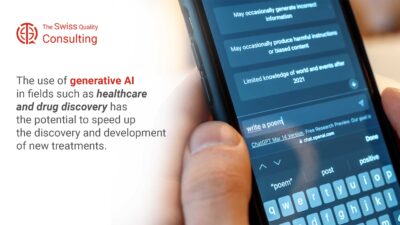Unveiling Disease Markers: The Power of Big Data in Genomics
Revolutionizing Healthcare Through Big Data in Genomics
The utilization of big data in genomics is reshaping the landscape of healthcare, particularly in regions like Saudi Arabia and the UAE where innovation is prioritized. By leveraging vast datasets and advanced analytics, researchers can expedite the identification of disease markers, leading to more accurate diagnostics and personalized treatments. This paradigm shift in genomics is poised to significantly enhance patient outcomes and drive forward the progress of precision medicine.
Accelerating Disease Marker Identification
One of the primary advantages of employing big data in genomics is its ability to accelerate the identification of disease markers. Traditional methods of genomic analysis are often time-consuming and resource-intensive. However, with big data analytics, researchers can analyze large-scale genomic datasets in a fraction of the time, uncovering patterns and associations that may have otherwise gone unnoticed. This rapid analysis enables healthcare providers to identify potential disease markers more efficiently, paving the way for early detection and intervention.
Personalizing Healthcare Through Precision Medicine
Furthermore, the integration of big data in genomics facilitates the development of personalized treatments through precision medicine. By analyzing an individual’s genetic makeup alongside other relevant data points, such as lifestyle factors and environmental exposures, healthcare providers can tailor treatment plans to the specific needs of each patient. This personalized approach not only improves treatment efficacy but also reduces the risk of adverse reactions, ultimately leading to better patient outcomes and higher satisfaction rates.
Strategic Implementation and Change Management
The successful integration of big data in genomics requires strategic implementation and effective change management strategies. Business executives and healthcare leaders must recognize the value of big data analytics and invest in the necessary infrastructure and talent to support its implementation. This may involve partnering with technology providers, hiring data scientists, and fostering a culture of innovation within healthcare organizations.
Embracing Change Through Executive Coaching
Executive coaching services play a crucial role in helping leaders navigate the complexities of implementing big data initiatives in genomics. By providing guidance and support, executive coaches empower leaders to overcome resistance to change, foster collaboration across teams, and drive organizational transformation. Through targeted coaching sessions, leaders can develop the skills and mindset needed to harness the full potential of big data in genomics and achieve strategic business objectives.
Effective Communication and Stakeholder Engagement
Additionally, effective communication and stakeholder engagement are essential for garnering support and buy-in for big data initiatives in genomics. Leaders must articulate the benefits of big data analytics in a clear and compelling manner, addressing any concerns or misconceptions that may arise. By involving key stakeholders, such as clinicians, researchers, and patients, in the decision-making process, leaders can ensure that big data initiatives are aligned with organizational goals and priorities.
The Future of Healthcare: Unlocking Potential Through Big Data
As we look to the future, the integration of big data in genomics holds immense promise for transforming healthcare on a global scale. In regions like Saudi Arabia and the UAE, where innovation is driving rapid advancements in healthcare technology, the adoption of big data analytics represents a significant opportunity for improving patient care and driving operational efficiency. By embracing big data and investing in strategic initiatives, healthcare organizations can unlock new insights, accelerate medical breakthroughs, and ultimately enhance the quality of life for individuals worldwide.
Addressing Ethical and Privacy Concerns
However, alongside its transformative potential, the use of big data in genomics raises important ethical and privacy considerations. Healthcare organizations must prioritize patient confidentiality and data security to maintain trust and compliance with regulatory standards. By implementing robust data governance frameworks and adhering to best practices, organizations can mitigate risks and ensure responsible use of big data in genomics.
Investing in Research and Innovation
Furthermore, continued investment in research and innovation is essential for advancing the field of big data in genomics. Collaborative efforts between academia, industry, and government are needed to drive forward scientific discovery, develop cutting-edge technologies, and translate research findings into real-world applications. By fostering a culture of curiosity and exploration, we can unlock the full potential of big data to address some of the most pressing challenges in healthcare and beyond.
Conclusion
In conclusion, the use of big data in genomics is revolutionizing healthcare by accelerating the identification of disease markers and enabling personalized treatments through precision medicine. Strategic implementation, effective change management, and stakeholder engagement are essential for maximizing the benefits of big data analytics in genomics. As we continue to harness the power of big data, we move closer to realizing the vision of a healthier, more sustainable future for all.
#BigDatainGenomics #Genomics #DiseaseMarkers #SaudiArabia #UAE #Riyadh #Dubai #ChangeManagement #ExecutiveCoachingServices #EffectiveCommunication #BusinessSuccess #ManagementConsulting #ArtificialIntelligence #Blockchain #TheMetaverse #GenerativeArtificialIntelligence #LeadershipSkills #ProjectManagement























